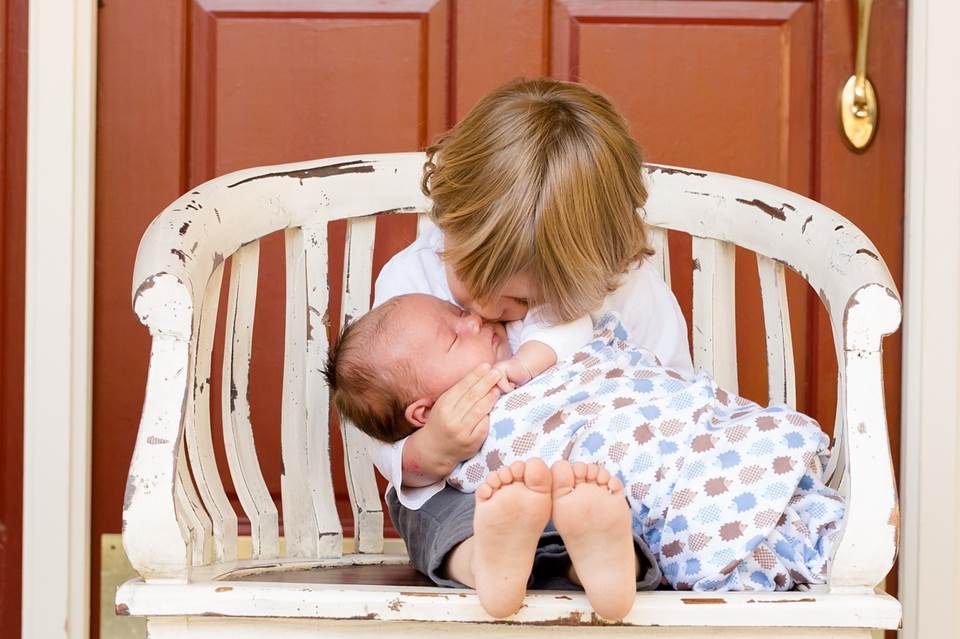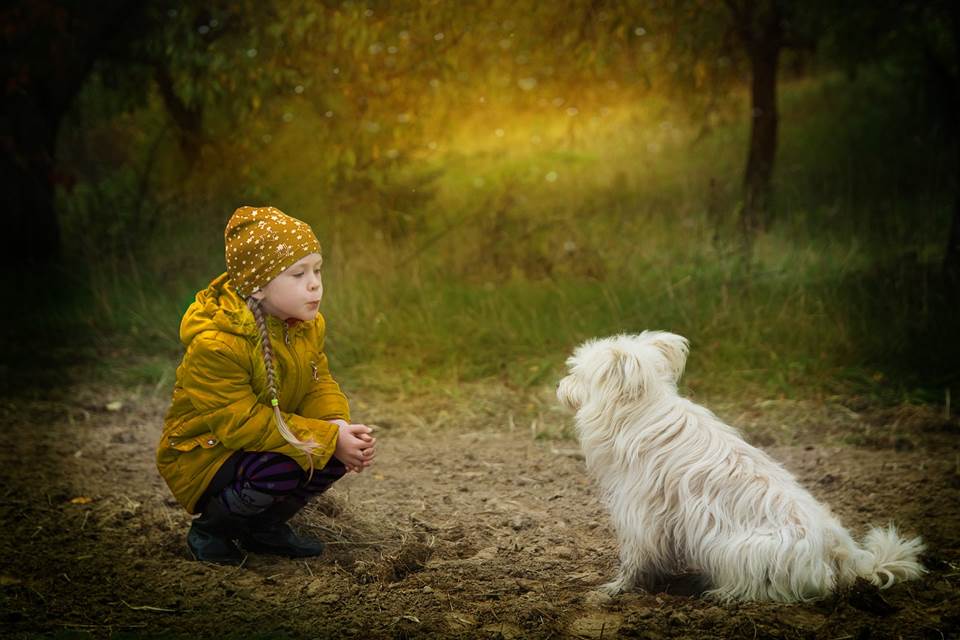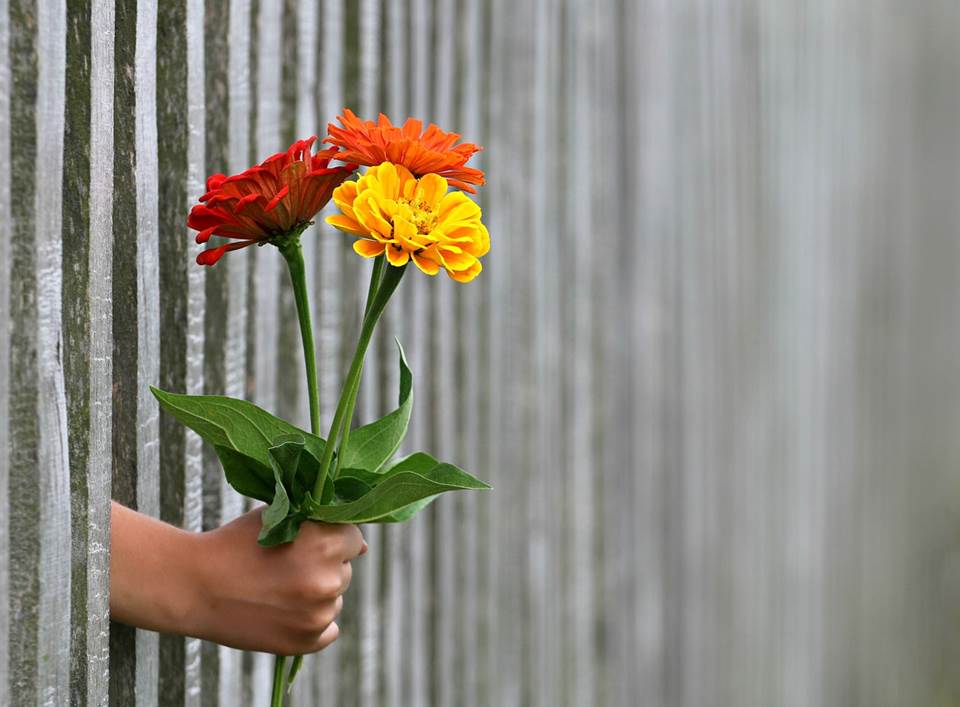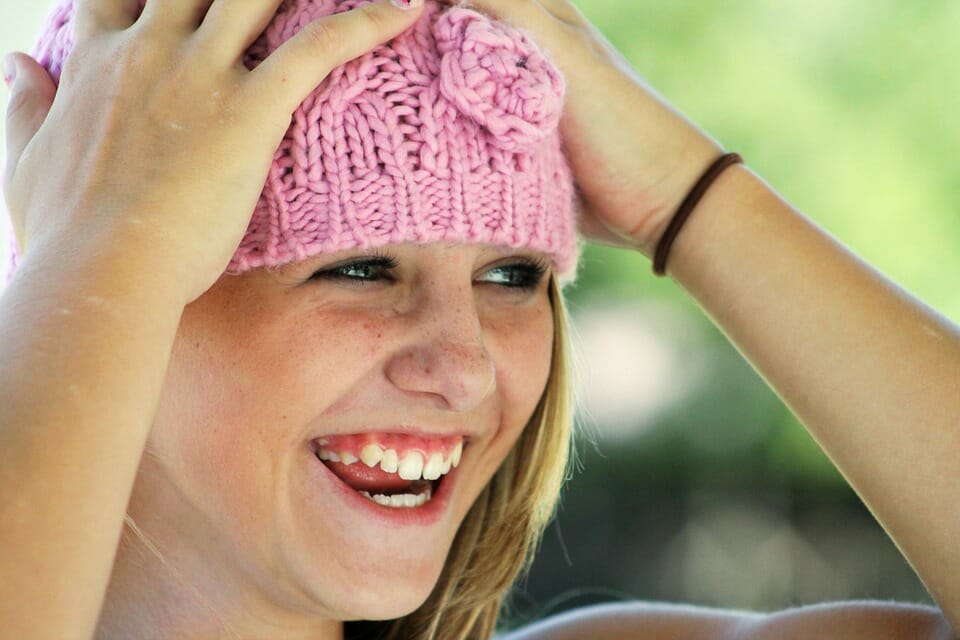
Humans are kind in nature. Just watch young children. They are born with natural kindness. This is the main reason it’s so wonderful to be around children. They constantly give and engage in a way that makes you want to give in return.
Research has found that kindness is contagious. If you want to see it in action, try smiling at people as you pass them on the street. Smiling is an act of kindness! And when you smile, people smile back.
When babies see a puppet show with kind and affectionate characters, followed by rude and mean ones, they prefer the kind puppets. Yes, they were just babies. But they have an innate ability to mirror their surroundings. They can notice the tone of the voice and actions.
So, after watching the puppet shows, they preferred kind and compassionate interactions. It made them feel better. We’re talking about three-month-old babies, who have no critical thinking and haven’t formed the concept of right and wrong. Still, they preferred the kind puppets to the rude ones.
The findings in the study support Darwin’s claim that all humans have sympathy and cooperation abilities and that they are the key to successful evolution. If we can learn compassion, it will improve our lives significantly.
Testing with toddlers confirms these findings. Preferring goodness and kindness seems to be good for our survival.
Giving is receiving

Kindness creates an amazing ripple effect. Those who receive kindness feel good. And those who give it also feel good. The movie Pay It Forward describes this beautifully.
Research subjects who received acts of kindness reported 10 times more than the control group, although the number of kindness acts wasn’t 10 times higher. A month later, when the research finished, they still reported higher satisfaction and happiness.
Those who received acts of kindness showed kindness to others and that only rippled. They did 3 times more acts of kindness than the control group.
Those who acted in kindness had a greater sense of control at work and were more satisfied from life and work. More so than those they were kind to!
The researchers concluded that receiving an act of kindness increases our satisfaction and happiness and showing kindness increases them even more.
The wonderful thing about kindness is that it’s contagious and when we start spreading it, it multiplies. Since children have it naturally, it’s easy to teach them to be kind to others and develop empathy and compassion. Some programs taught in school caused an increase of 10% in kindness and a decline of 10% in bullying.
The natural inclination to be kind starts declining in children at the age of 6, but putting them through kindness programs before that age extends this ability to give.
That’s also true in grownups. Research has found that Loving Kindness prayer (see below) rekindled people’s natural ability to be kind.
The loving kindness meditation is a form of prayer, repeated with the intent to share compassion. First to self, then to a loved one, e.g. “May my mother be peaceful”, to a stranger, and ultimately, to someone we don’t like or someone who’s hurt us.

Researchers in Wisconsin conducted a study in which they gave a brief explanation about the loving kindness prayer to their research subjects. They asked them to review an unpleasant event, and later asked them to consider it from another person’s perspective.
The focus group was then asked to listen to an audio recording of the loving kindness meditation, while the control group listened to a description of a technique to examine an unpleasant event from another perspective.
Two weeks later, participants played an online game, which asked them to donate the money they’ve received to a total stranger. Those who had listened to the loving kindness mediation gave twice as much as those who’d learned about considering another’s perspective.
When the researchers scanned the brains of their subjects, they found out that the group that had practiced loving kindness had higher activity in parts of the brain that understand others’ suffering (empathy) and regulating feelings. These participants also reported a general increase in positive feelings.
Sadism or altruism
In the 60’s, Stanley Milgram developed an experiment where participants were asked to give electric shocks to someone in another room. Those receiving the shocks were actors who simply made noises in relation to the severity of the “shock”. No shock was actually administered.
Milgram wanted to examine obedience and trust in authority – how willing people were to hurt others because they were told to do so. The world was very disturbed by the results. Out of 40 people, 26 reached maximum level of shock.
In a more recent study in London, researchers recreated and added to Milgram’s experiment. They offered 80 participants a money reward for giving someone an electric shock or for receiving it. They higher they went with the shock, the more money they would get.
People were willing to give up reward money to avoid causing others pain. They were more likely to accept that money to allow someone else to hurt them.
In fact, they needed double the monetary reward to get people to agree to inflict/increase the pain they caused others. These people also took longer to agree to do it.
Some people say that the growing popularity of reality TV programs reflects an increase in people’s desire to see others suffer. A study in Israel found that the increase in reality television isn’t because people love seeing others humiliated and shamed. Instead, it’s because they identify with the pain, which shows an increase in empathy.

Kindness with children
So, how do you develop and encourage empathy in children so they can be kind to others?
Well, I’ve actually written about it already in 14 Ways to Develop Empathy in Children. Check it out!
I’ve found through my work that you can even teach these techniques to children and adults on the Autism Spectrum, and it works! With these exercises, I’ve managed to change the diagnosis of a child after just 6 months of work. It saved him and his family from a very painful path.
He had autism. Most people believe it doesn’t go away. I can tell you from experience, teaching empathy has a huge effect on the symptoms. And if you work with your kids when they’re young enough, no one will be able to tell.
Kindness and empathy for parents
Kind grownups are just as necessary for our society as children are, if not more. Especially kind parents. Because children always mirror and consider them a reference for the norm.
Below are some parenting tips on how to nurture your child’s natural tendency to be kind.
Model kindness by volunteering
A year ago, I was invited to attend a volunteer-based Christmas breakfast event for the homeless in our city. It was Christmas day, and we spent the day before preparing food to bring with us.
My kids cooked and came to serve the food as well. It was so uplifting! I think we got more from it more than the homeless people.
Find a charity to support together as a family
Several years ago, we decided as a family to donate money to an organization called KIVA. We liked this organization because it empowers people to support themselves (particularly women).
We use the Kiva site to lend our money to those in need and help improve their lives. When it comes back, we choose another group and lend the money to them. For us, it’s a donation, because we never get the money back.
The amounts are small for us, but can make the difference between life and death for the borrowers. When kids see what such small amounts of money can do for others, they learn a good lesson in gratitude and generosity.
Smile and be present
Smiling is an act of kindness. Smiling parents raise smiling kids. Smiles are a sign of satisfaction.
When children see their parents making a grumpy face, they immediately ask themselves, “What have I done wrong?” They don’t understand you’ve had a bad day at work.
When you spend time with them and your mind is somewhere else (thinking about your day), you are in fact, not present. Your body is there, but your mind is not. Be kind, give them your mind and be present.

Use kind words
Your words are important to your children. So use kind words. Give compliments and use a kind tone of voice.
Harsh words are like slapping your child. Kind words to the soul are like a hug to the body. Go to sleep every day after counting how many kind words you’ve used that day.
Practice loving kindness meditation
It’s very helpful! You can google it and find audio versions for free. When you get the hang of it, it’s easy.
There was a period where I practiced it after I dropped the kids off at school. On the way home, I would send loving kindness to everyone around. “May you all get to work on time. May those who drive fast get to their destination safely. May the stop light be green for all those in a hurry. May the plants get water from the rain today. May all the babies born today be healthy…”
Everything I saw on the street or just remembered, I would pray for it. It felt so good. I loved it. Even now, when someone is very upset, I say to myself, “May they find peace”.
A few years ago, I printed myself a version of the loving kindness prayer and stuck it around the house to read from time to time.
We have a natural tendency to be kind. We can make sure the kindness spreads if we nurture it. And you, the parent, are the best person to do it.
Be kind!
Ronit











